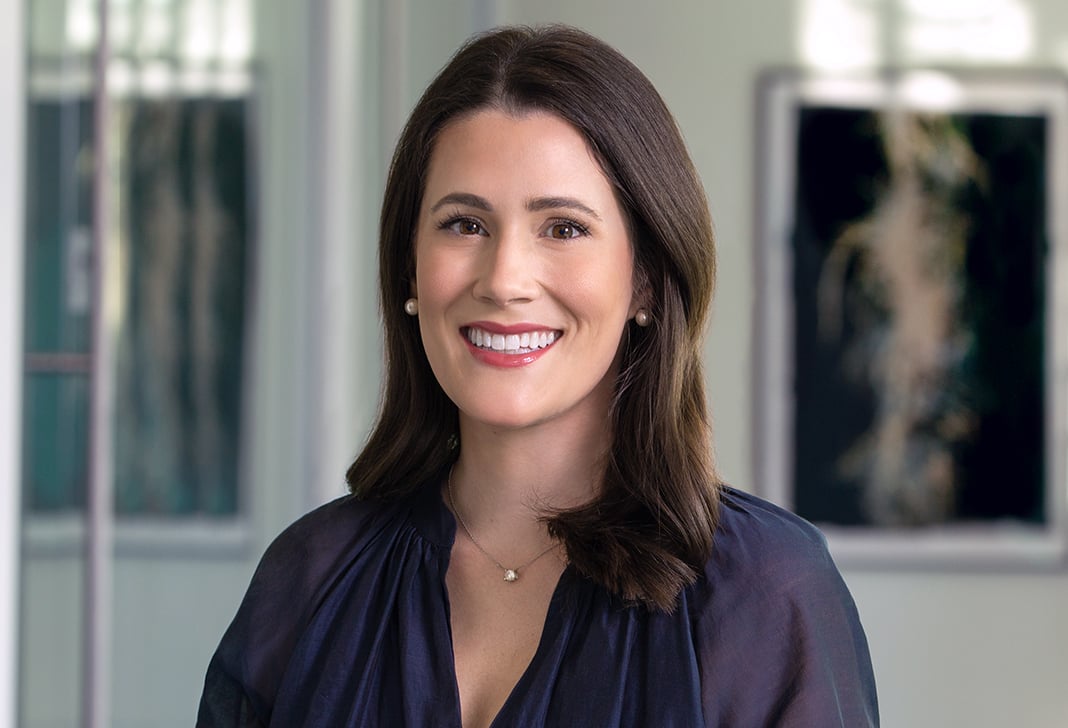
Increasing Scrutiny of "ESG‑Influenced Investing" by ERISA Plans Has Implications for Stakeholders
In Short
The Situation: In January 2025, the Northern District of Texas ruled that ESG factors influenced investment decisions by 401(k) plan fiduciaries in violation of the Employee Retirement Income Security Act ("ERISA"), despite those decisions meeting ERISA's prudence standard. The court deferred judgment on the remedies until September 30, 2025, when it issued its final, remedial judgment ("the Spence Remedial Ruling").
The Development: The Spence Remedial Ruling imposes an array of burdensome equitable remedies on the 401(k) plan fiduciaries, the 401(k) plan's corporate sponsor and their respective officers, employees, and agents—most in perpetuity—while denying monetary damages.
Looking Ahead: This decision—involving 401(k) operation and design—is part of a significant and broader trend to scrutinize ESG-influenced decision-making by benefit plan sponsors, corporate management and boards, investment managers and other benefit plan service providers. Such stakeholders should consider the Spence Remedial Ruling's potential impact and related risks and what remedial actions, if any, may be appropriate in response.
The Spence Initial Ruling: Breach of Loyalty
In Spence v. Am. Airlines, Inc., 775 F. Supp. 3d 963 (N.D. Tex. 2025) (the Spence Initial Ruling) the court found that American Airlines ("Sponsor") and its 401(k) plan ("Plan") fiduciary committee ("Fiduciary Committee") violated ERISA's duty of loyalty due to a lack of separation between corporate and Plan decision-making. The court focused on the Plan's use of BlackRock (one of the Sponsor's largest shareholders and a significant lender) as an investment manager, finding that BlackRock made ESG-related investment management decisions aligned with the Sponsor's own corporate ESG goals. Notably, the Plan offered no ESG-focused investment options and the court found that the Sponsor and the Fiduciary Committee complied with ERISA's duty of prudence in hiring and retaining BlackRock.
The court determined there was a lack of separation between pursuing the Sponsor's corporate ESG goals and its responsibilities to the Plan under ERISA, leading to what it deemed impermissible "cross-pollination" of interests and insufficient monitoring of BlackRock. The court saw this manifested in a variety of ways, including missing required annual attestations about BlackRock's proxy voting procedures; lack of consideration of BlackRock activities that the court characterized as ESG activism; and overlap of executives managing the Sponsor's corporate relationship with BlackRock while also advising the Plan's Fiduciary Committee. The court also found financial ties between BlackRock and the Sponsor—including BlackRock's holding of 5% of the Sponsor's stock and $400 million of its corporate debt—to have improperly influenced Plan management. As a result, according to the court, the Sponsor and the Fiduciary Committee turned a "blind eye" to BlackRock's corporate activism and its Plan investment decisions.
The Spence Remedial Ruling: Burdensome Remedies Despite No Monetary Loss
In its September 30 ruling on the remedies, the court found that the plaintiff failed to establish plan investment losses sufficient to justify monetary damages, but it also ruled that equitable relief was necessary to ensure that the Sponsor, the Fiduciary Committee, and Plan investment managers act loyally and "ensure fidelity to ERISA's fiduciary standards." Spence v. Am. Airlines, Inc., No. 4:23-cv-00552-O (N.D. Tex. Sept. 30, 2025).
Noting ERISA's authorization of "other equitable or remedial relief," the court permanently enjoined the Sponsor, the Fiduciary Committee, and the Sponsor's officers, employees, and agents as follows:
- The Sponsor may not permit proxy voting, shareholder proposals, or other stewardship activities on behalf of the Plan if "motivated by or directed towards non-pecuniary ends, including but not limited to ESG-oriented investment management and objectives, that are not in the exclusive best financial interest of Plan participants and beneficiaries."
- For a five-year period, the Sponsor must hire and appoint at least two independent members of the Fiduciary Committee with no connection to any administrator, advisor, and/or investment manager of the Plan's assets (including their affiliates and subsidiaries) (the "Restricted Group").
- The new Fiduciary Committee must provide annually to each Plan participant:
- A written report identifying financial transactions and/or financial relationships between the Sponsor and the Restricted Group.
- Certification that the Fiduciary Committee and each administrator, advisor, and/or investment manager of Plan assets will: (i) pursue investment objectives solely "based on provable financial performance, not DEI, ESG, sustainability, or any other nonfinancial criteria"; and (ii) require that proxy votes cast on behalf of Plan participants are "solely to maximize the long-term financial returns of Plan participants' investments and not DEI, ESG, sustainability, or other nonfinancial criteria."
- The Sponsor must publish on its corporate website, and provide to the independent members of the Fiduciary Committee, information concerning membership of the Sponsor and the Restricted Group in organizations "principally devoted to achieving DEI, ESG, or climate-focused investment or stewardship objectives," including UN PRI, NZAMi, and Ceres.
- The Sponsor may not use BlackRock, or any other asset manager holding 3% or more of the Sponsor's shares or any of the Sponsor's fixed debt, to manage Plan assets without "policies preventing those who maintain the corporate relationship with the asset manager from also being Plan fiduciaries or playing a role in managing the Plan."
Implications for Stakeholders
Boards and Management Teams. We expect the Spence Remedial Ruling will heighten focus on how companies and boards are implementing ESG into their decision-making. In the Spence Initial Ruling, the court stated that "describing an ESG consideration as a material financial consideration is not enough" and that to consider ESG in investment decisions, there "must be a sound basis for characterizing something as a financial benefit." Companies should review and consider with their boards the financial underpinnings of their ESG-related goals and how that can be documented.
After the Spence Remedial Ruling, management teams would also be well-advised to review their ERISA plans and consider whether remedial actions should be discussed with plan fiduciaries and the board, particularly in light of Delaware's current application of the Caremark duty of oversight.
Proxy Advisors and Investment Managers. It's no secret that proxy advisors are under pressure, and we expect the Spence Remedial Ruling to further complicate their business model, as companies and benefit plan managers may increasingly expect demonstrable financial underpinnings for the advisors' recommendations and analyses. These developments may further lessen proxy advisors' influence and create a less centralized shareholder engagement model.
Investment managers may similarly see increased pressure to demonstrate the economic justification for proxy voting and other shareholder decisions, and to distance themselves from organizations perceived as focused on DEI, ESG or other goals. Increased monitoring by plan clients and more demanding contractual terms with plans may also increase costs.
Plan Sponsors and Fiduciaries. Plan sponsors and fiduciaries should consider examining their plan management practices in light of the Spence Remedial Ruling. Immediate actions may include:
- Considering how and to what extent the plan's fiduciaries should monitor general, corporate-level activism (which, per the court, includes membership in interest groups) engaged in by the entities they hire as investment managers and service providers;
- Reviewing existing investment management and other plan fiduciary service provider contracts to ensure that: (i) each service provider is required to act exclusively in the financial interest of the plan, including with respect to proxy voting and other shareholder actions; and (ii) each service provider provides information sufficient to permit monitoring by the plan fiduciary.
- Examining plan documents and plan management policies to 'ring-fence' plan fiduciary authority and responsibility to an identified set of plan fiduciaries with clearly allocated responsibilities, thereby avoiding accidental fiduciaries;
- Establishing corporate and plan policies to create and maintain clear separation between corporate and plan decision-making; and
- Assessing financial ties between investment managers, service providers, and the plan sponsor, with a particular focus on the extent of equity ownership or holding of debt.
Two Key Takeaways
- Outside activities of investment managers may matter. Plan fiduciaries and plan sponsors should: (i) consider how the activities of investment managers and other service providers, including activities outside of direct services to the plan, could be perceived to create conflicts of interest; and (ii) review service provider contracts and internal policies and procedures for avoiding and managing such conflicts.
- Plan and corporate actors need to wear "separate hats." Plan sponsors and plan fiduciaries need to be mindful of the need to maintain separation between plan and corporate roles (wearing "separate hats"). When there is overlap, the evidence should show that actions in a plan fiduciary role are carried out with loyalty, first and foremost, to the plan participants.









